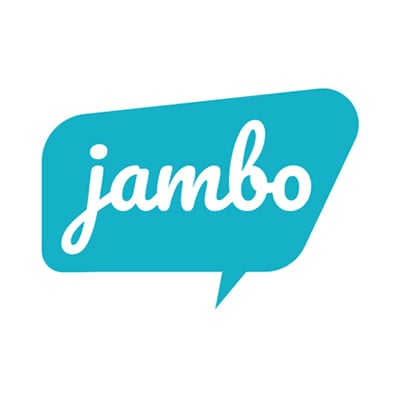L'engagement des parties prenantes est le processus de gestion des relations et des communications avec les individus ou les groupes qui ont un intérêt direct dans les activités, les décisions ou les résultats d'une organisation.
To learn about the 7 key steps in stakeholder engagement, visit our blog!
Un engagement efficace des parties prenantes est essentiel à la réussite des organisations et des gouvernements, car il leur permet de comprendre et de répondre aux besoins et aux préoccupations de leurs parties prenantes.
Cependant, la gestion de l'engagement des parties prenantes est un processus complexe et dynamique qui nécessite une planification, une coordination et un suivi minutieux. Pour obtenir des conseils sur la manière d'améliorer votre engagement auprès des parties prenantes, consultez notre blog!
Traditionnellement, les organisations et les gouvernements utilisent des feuilles de calcul pour gérer l'engagement des parties prenantes. Croyez-nous, nous en comprenons l'intérêt. C'est un moyen simple de rassembler toutes les informations en un seul endroit - après tout, qui n'a jamais utilisé un tableur ?
Mais croyez-nous, s'appuyer sur des feuilles de calcul pour gérer l'engagement des parties prenantes est un risque énorme.
Is it time for you to break up with spreadsheets? Visit our blog to learn more.
Dans cet article de blog, vous apprendrez exactement pourquoi il s'agit d'un pari et vous découvrirez des alternatives plus efficaces pour la gestion des données des parties prenantes.
1. Fonctionnalité et évolutivité limitées
Les feuilles de calcul sont conçues pour gérer des données numériques, et non l'engagement des parties prenantes.
Si les feuilles de calcul peuvent être utilisées pour stocker les informations relatives aux parties prenantes, leur fonctionnalité est limitée lorsqu'il s'agit d'analyser, de suivre et d'établir des rapports sur ces informations.
Au fur et à mesure que les organisations et les gouvernements se développent, leurs activités d'engagement des parties prenantes deviennent plus complexes. C'est alors que les limites des feuilles de calcul deviennent plus évidentes.
Les feuilles de calcul peuvent devenir encombrantes, rendant difficile la gestion de grands volumes de données ou le suivi des relations avec de multiples parties prenantes. Il peut en résulter des inefficacités, des erreurs ou des occasions manquées d'engagement.
To learn more about the limited functionality and scalability of spreadsheets, check out our blog.
2. L'erreur humaine
Les feuilles de calcul sont connues pour leur potentiel d'erreur humaine.
Avec autant de données à saisir et à manipuler, il est facile de commettre des erreurs qui peuvent avoir des conséquences importantes.
Les erreurs dans les données relatives à l'engagement des parties prenantes peuvent conduire à des malentendus, à des occasions manquées et à des relations dégradées.
Une simple erreur de calcul a coûté 24 millions de dollars à TransAlta. Le directeur général Steve Snyder a déclaré que le problème était "littéralement une erreur de copier-coller dans une feuille de calcul que nous n'avons pas détectée lorsque nous avons procédé au tri final et au classement des offres avant leur soumission", rapporte Reuters.
The benefit to having clean stakeholder data is you can find insights about your stakeholders and project, stay on track with your stakeholder issues and commitments, and lower your project risk! For tips on keeping your stakeholder data clean, visit our blog.
3. Risques liés à la sécurité des données
Les feuilles de calcul sont souvent utilisées pour stocker des informations sensibles, telles que les coordonnées des parties prenantes et leurs commentaires.
Si ces informations tombent entre de mauvaises mains, elles peuvent nuire à la réputation, entraîner des problèmes juridiques ou une perte de confiance de la part des parties prenantes.
Les feuilles de calcul ne sont pas conçues pour être sécurisées. Elles peuvent facilement être partagées avec du personnel non autorisé et ne disposent pas des fonctions de cryptage et de contrôle d'accès nécessaires pour protéger les données sensibles.
Cela peut rendre les organisations vulnérables aux violations de données et à d'autres risques de sécurité. Cela peut non seulement mettre votre entreprise en danger, mais aussi vous mettre en infraction avec les réglementations sectorielles régissant l'engagement des parties prenantes.
Lire ce guide : Comment éviter 6 risques courants liés à l'engagement des parties prenantes
4. Manque de collaboration
L'engagement des parties prenantes est un processus dynamique qui nécessite une collaboration et une coordination en temps réel entre les différentes équipes et services d'une organisation ou d'un gouvernement.
Les feuilles de calcul, quant à elles, sont généralement utilisées par une seule personne à la fois (mais nécessitent la contribution de nombreuses personnes en cours de route).
Bien que plusieurs personnes puissent accéder à une feuille de calcul et la mettre à jour en même temps, il peut devenir difficile de suivre les changements et de s'assurer que tout le monde travaille avec les informations les plus récentes.
Ce manque de collaboration en temps réel peut entraîner des erreurs de communication, des doubles emplois, des incohérences et des erreurs dans les données.
To learn more about the benefits of having your stakeholder engagement data centralized, visit our blog!
5. Inefficacité et perte de temps
La collecte, l'organisation et l'analyse des informations relatives aux parties prenantes peuvent prendre un temps précieux, en particulier lorsque le nombre de parties prenantes augmente.
Cela peut ralentir le processus d'engagement des parties prenantes et rendre plus difficile l'établissement de relations positives et la réalisation des objectifs du projet.
Les tableurs ont également des capacités de reporting limitées en ce qui concerne l'engagement des parties prenantes.
Compiling reports from multiple spreadsheets can take days.

 Les logiciels d'engagement des parties prenantes sont également dotés de fonctions de reporting avancées qui vous permettent de générer rapidement des rapports et d'analyser les données en temps réel.
Les logiciels d'engagement des parties prenantes sont également dotés de fonctions de reporting avancées qui vous permettent de générer rapidement des rapports et d'analyser les données en temps réel. 








